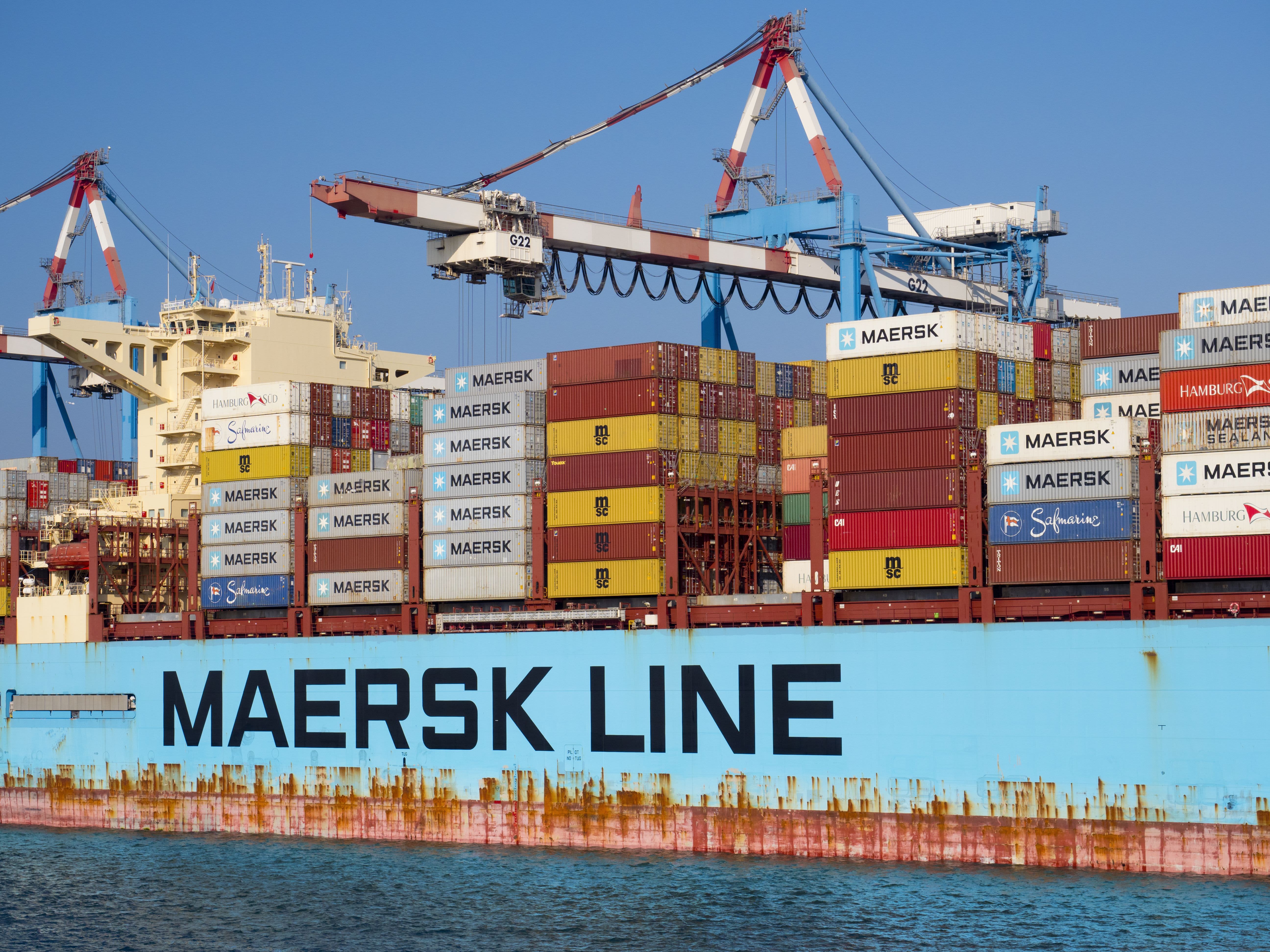In the Haifa container port in Israel, giant gantry cranes and off-loading freighters are seen. Maersk has stated that it expects the underlying EBITDA for this year to range between $1 billion and $6 billion, in comparison to the $9.6 billion that was recorded in 2023. The company’s shares were trading 14.2% lower at 8:30 a.m. London time.
CEO Vincent Clerc mentioned to CNBC’s “Squawk Box Europe” that the current situation is causing uncertainty regarding the earnings outlook for the year. He added that there is very little clarity on whether the situation will be resolved in a matter of weeks or months, or persist throughout the year. The company’s board has decided to “immediately suspend the share buy-back programme, with a re-initiation to be reviewed once market conditions in Ocean [division] have settled,” as stated in a release by the company.
This announcement comes after the company reported fourth-quarter profit below expectations, with the EBITDA for the three-month period dropping to $839 million versus the $1.13 billion anticipated by analysts. Since late 2023, global supply chains have been facing significant disruption after major shipping companies began diverting journeys away from the Red Sea due to a series of attacks by Yemen’s Houthi rebels.
The attacks by the Iran-aligned group, using drones and missiles, have targeted commercial vessels in solidarity with Palestinians amid the ongoing Gaza-Israel war. The diversions around one of the world’s busiest shipping lanes have resulted in increased delivery times and costs, prompting the OECD to warn on Monday that it could lead to higher inflation.
The OECD stated that the recent 100% increase in seaborne freight rates could potentially cause import price inflation across its 38 member countries to rise by nearly 5 percentage points if it persists. The rerouting has led to higher freight rates for shipping companies, but Clerc expressed doubt that these increases would translate into profits.
He mentioned, “I don’t think from an earnings perspective, for the industry or for Maersk, when you look at it in its entirety that this is going to be something where we generate significant profit out of the situation.” Clerc also emphasized that the amount of cost being absorbed to sustain the global supply chain is still uncertain at this moment.
Maersk’s stock drops by 14% following suspension of share buybacks due to disruptions in the Red Sea




.png)





:max_bytes(150000):strip_icc()/rsp-tier-3-cerave-moisturizing-cream-hwortock-001-002-5cf5145cc2324820bdd1b68b96c01fa7.jpeg)

